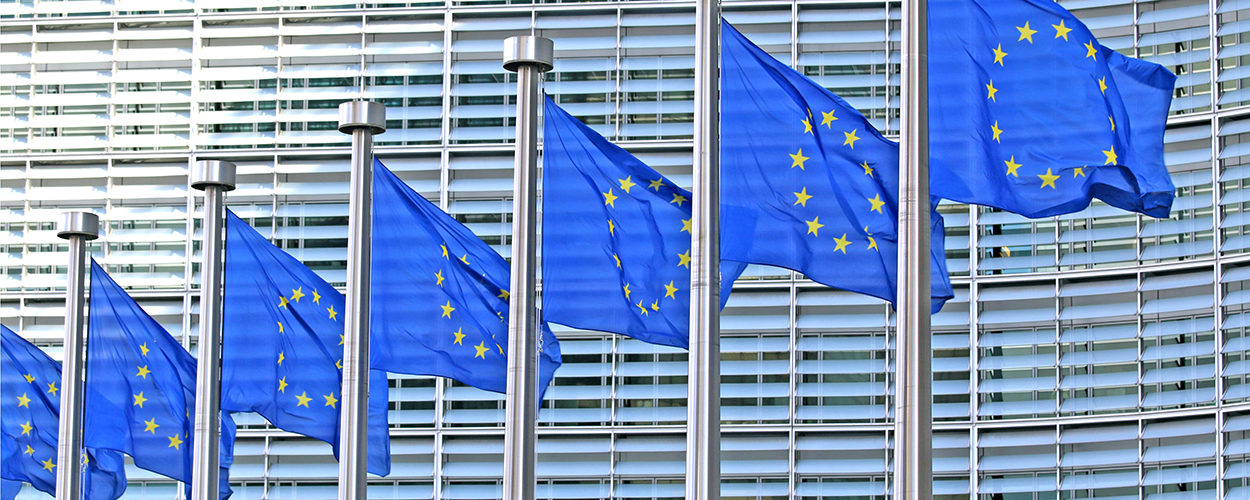This website uses cookies so that we can provide you with the best user experience possible. Cookie information is stored in your browser and performs functions such as recognising you when you return to our website and helping our team to understand which sections of the website you find most interesting and useful.
Business News Digital Labels & Publishers Legal Top Stories
Music industry organisations call on EU institutions to back transparency obligations in new AI Act
By Chris Cooke | Published on Thursday 20 July 2023

A coalition of organisations representing creators and copyright owners have called on all the institutions of the European Union to back data and transparency provisions that were added to the EU Artificial Intelligence Act by the European Parliament.
Those provisions, the organisations said yesterday, are “a first step in the right direction” when it comes to effectively regulating companies that are developing generative AI platforms, and therefore “we call on the European institutions to support these provisions”.
The EU AI Act is now in the very final stages of negotiation and, once passed, will introduce a number of new regulations in relation to artificial intelligence across the European Union.
Generative AI models – which can generate text, images, audio and video – weren’t originally covered by the act, but – with those technologies becoming such a big talking point in the last year – the final version agreed by the European Parliament does provide some regulation in that domain.
Generative AI models are ‘trained’ by being exposed to existing content. The music industry – and the wider copyright industries – insist that where copyright-protected works are used for that training, an AI company must seek consent from and negotiate a licence with the relevant copyright owners. Not all AI companies agree, but the copyright industries are busy seeking clarity from lawmakers that their view on this is correct.
Assuming it is, the next challenge for copyright owners is working out what content has been used to train any one AI. To that end, the copyright industries are also calling for AI companies to have certain transparency obligations, so that it’s clear what data has been used in the training process. This will allow copyright owners to identify whether any rights have been infringed, and could also help with the development of future licensing models.
Some transparency obligations are included in the version of the EU AI Act agreed by the European Parliament. A final version of the act is now being negotiated by the Parliament, the EU Council and the European Commission. And the copyright owners are keen to ensure that the transparency obligations in the Parliament’s version are in the final draft.
Music industry organisations like GESAC, ICMP, IFPI, IMPALA and IMPF joined groups representing film, photography, newspapers, magazines, books and journals in making that call yesterday.
They wrote: “The European Union has the unique opportunity to lead globally in establishing a responsible AI framework. In doing so, it would boost innovation and create new business opportunities, while ensuring that AI develops in a way that is responsible and sustainable for European creators”.
“To achieve this”, they went on, “it is essential that AI systems are trained on content and data which is accessed lawfully, including by appropriate prior authorisations obtained for the use of copyright-protected works and other subject matter, and that the content and sources used to train the systems are clearly identified”.
While noting that creators and copyright owners recognise and embrace the positives of generative AI, they added: “It is essential that all AI systems made available in the EU comply with the existing EU copyright framework”.
And to help make that happen, “it is essential that developers and deployers of AI systems keep detailed records of third party works or other protected subject matter used, alongside the basis on which they were accessed, and make this information available to rightholders”.
“The obligation to keep accurate records should go back to the start of the development to provide a full chain of use”, they continued. “Further, to avoid ‘AI laundering’ it must extend to all systems that are made available in the EU, or that produce output used in the EU, regardless of the jurisdiction in which the training or testing may have taken place. Failure to keep detailed records should give rise to a presumption of use of the data in question”.
With all that in mind, “the European Parliament’s proposal to oblige AI providers to record the data used to train AI, including material protected under copyright law, and to make this available in a sufficiently detailed way for rightsholders to identify and enforce their rights, is a first step in the right direction”.
“We call on the European institutions to support these provisions”, they concluded, “and we look forward to working with them to make further improvements to ensure the AI Act is fit for the purpose of protecting the work of European creators and rightsholders”.





